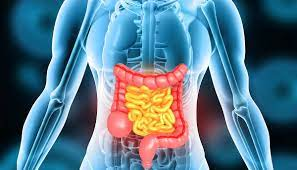
Table of Contents
5 Easy Ways to Ensure Your Body Is Effectively Digesting
Protein is a crucial macronutrient essential for numerous bodily functions, including muscle repair, enzyme production, and immune system support. However, consuming is only part of the equation; your body must also efficiently digest and absorb it to reap its benefits. Effective digestion ensures that the amino acids are available for use in various physiological processes. If you’re concerned about whether your body is digesting protein properly, here are five straightforward ways to help ensure optima digestion.
1. Incorporate Digestive Enzymes into Your Diet
Digestive enzymes play a critical role in breaking down proteins into their constituent amino acids. These enzymes, produced naturally by your body, are essential for protein digestion. However, sometimes the body may need additional support to produce or utilize these enzymes effectively.
- Enzyme-Rich Foods: Include foods that naturally contain digestive enzymes. Pineapple and papaya are rich in bromelain and papain, respectively, which help break down protein. Kefir, yogurt, and other fermented foods can also support enzyme function due to their probiotic content.
- Supplementation: If you suspect that your digestive system needs extra support, consider digestive enzyme supplements. Look for products that contain proteases, the enzymes specifically designed to break down .
2. Chew Your Food Thoroughly
Proper digestion begins in the mouth. Chewing food thoroughly is crucial because it breaks down protein into smaller particles, making it easier for digestive enzymes to work effectively in the stomach and intestines.
- Mindful Eating: Practice mindful eating by taking the time to chew each bite thoroughly. Aim for at least 20-30 chews per bite, especially with protein-rich foods like meat, poultry, or legumes. This not only aids digestion but also enhances nutrient absorption.
- Saliva Production: Chewing stimulates saliva production, which contains enzymes that begin the digestion of carbohydrates and prepare the food for further breakdown in the stomach. This initial step is essential for effective digestion.
3. Maintain a Balanced Diet
A balanced diet supports overall digestive health and ensures that your body can effectively break down and absorb. Eating a variety of foods provides the necessary nutrients and supports optimal enzyme function and gut health.
- Fiber-Rich Foods: Incorporate fruits, vegetables, and whole grains into your diet. Fiber promotes healthy digestion by supporting regular bowel movements and fostering a healthy gut microbiome. A well-functioning digestive tract is crucial for optimal protein absorption.
- Hydration: Staying hydrated is essential for digestion. Water helps break down food and dissolve nutrients, making them easier to absorb. Ensure you drink enough water throughout the day, especially when consuming high-protein meals.
- Probiotics: Including probiotic-rich foods like yogurt, sauerkraut, and miso can support a healthy gut microbiome. A balanced gut flora aids in digestion and nutrient absorption, including proteins.
4. Manage Stress Levels
Stress can negatively impact digestion by altering gut motility and enzyme production. Chronic stress can lead to digestive issues such as reduced stomach acid production and impaired enzyme function, which can affect protein digestion.
- Stress-Reduction Techniques: Incorporate stress-reducing practices into your daily routine. Techniques such as deep breathing exercises, yoga, meditation, and regular physical activity can help manage stress and improve overall digestive health.
- Mindful Eating: Practice mindful eating to reduce stress around mealtime. Avoid eating in a rush or while distracted, as this can exacerbate stress and impair digestion.
- Regular Physical Activity: Engage in regular exercise to promote overall health and support digestive function. Physical activity can help regulate digestive processes and reduce stress levels, contributing to better digestion.
5. Monitor Portion Sizes and Protein Sources
The type and amount of protein you consume can influence digestion and absorption. Large portions or difficult-to-digest sources can put extra strain on your digestive system.
- Portion Control: Avoid overeating protein-rich foods in a single meal. Large portions can overwhelm the digestive system and impair digestion. Instead, aim for moderate portions spread throughout the day to facilitate better digestion and absorption.
- Choose Easily Digestible Proteins: Some protein sources are easier to digest than others. Opt for lean meats, fish, eggs, and dairy products, which are generally well-tolerated. Plant-based proteins, such as legumes and nuts, are nutritious but may require more time to digest. Experiment with different sources to determine what works best for your digestive system.
- Cook Your Protein: Cooking foods can make them easier to digest. For example, well-cooked meats are often easier to digest than raw or undercooked versions. Similarly, soaking and cooking legumes can reduce their digestive burden.
Conclusion
Effective protein digestion is essential for ensuring that your body can utilize this vital macronutrient efficiently. By incorporating digestive enzymes into your diet, chewing food thoroughly, maintaining a balanced diet, managing stress, and monitoring portion sizes and sources, you can support optimal digestion and overall digestive health. Implementing these practices can help ensure that you reap the full benefits of the protein you consume, supporting your overall well-being and enhancing your nutritional intake.







